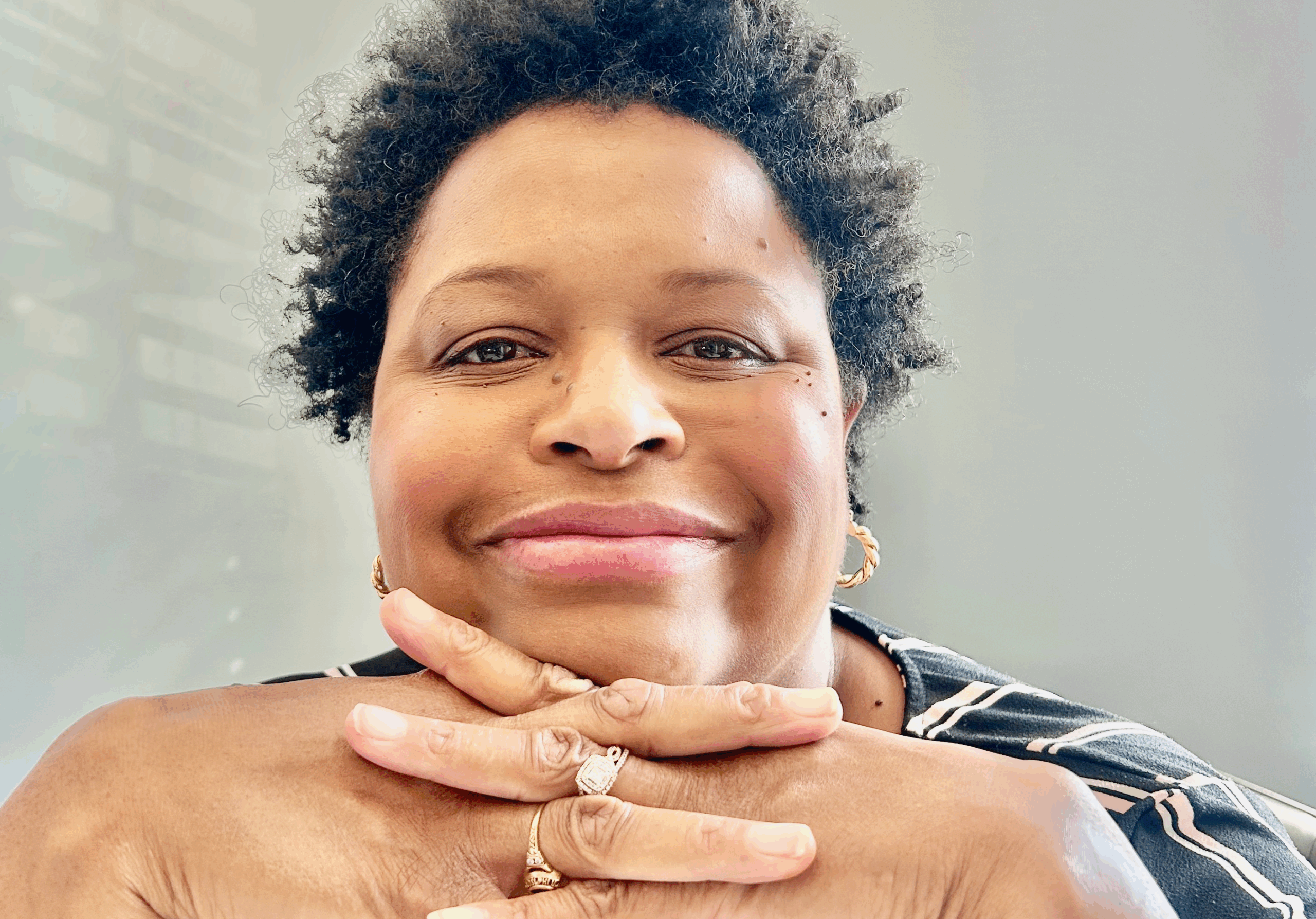
Published on Mar 06, 2024
Last modified on Mar 06, 2024
Q&A With Nora Lansen, Elektra’s New Chief Medical Officer
4 min read

Elektra is thrilled to welcome Nora Lansen, MD as Chief Medical Officer.
As a primary care physician, Nora brings a breadth of experience in healthcare; she completed her family medicine residency at the Institute for Family Health/Beth Israel NY before joining One Medical, where she practiced primary care and focused on the design and implementation of reproductive health services. Most recently, Nora served as Virtual Clinical Director at Galileo Health, overseeing the growth of the team from 5 to 150 clinicians, with a focus on delivering high-quality, accessible healthcare in the virtual space.
We caught up with Nora to learn more about her unconventional start in healthcare, why she’s so passionate about women’s health, and where she sees the biggest challenges — and areas of opportunity — in menopause care.
Walk me through what college-aged Nora was thinking at the time. Did you always know you wanted to enter the field of medicine?
When I went to undergrad at Johns Hopkins, I was actually an English major and also pre-med because I liked both things. I grew up in a medical family and I always thought that seemed like a noble profession, but I also really liked writing and analyzing literature. And ultimately, that took over. There was a great major at Hopkins called Writing Seminars. I did a lot of creative writing and then, thinking I would go into academia, I got a master’s degree at NYU in English Language and Literature.
My professors at NYU were great, but they were also very realistic about how hard academia can be — you have to be willing to not have any tenure, move to wherever you can find a position, probably without health insurance. And that got me thinking that this medicine thing might be practical after all. So after I got my masters in Literature from NYU, I did a complete pivot and started their post-bacc pre-med program. NYU offered participation in a 2-year clinical rotation program at a downtown Manhattan hospital that’s sadly no longer in existence called St. Vincent’s. That’s where I really got a sense for what clinical medicine was like. And I quickly learned that, while we have a very antiquated system of medical education in our country, clinicians don’t really have the time to start revolutionizing things because we’re all so burdened by the system. But having the clinical experience is what kept me going.
Why did you decide to go down the path of family medicine?
I had developed a passion for women’s health by this time. I witnessed women in circumstances of vulnerability without the right support, without the right language, without an understanding of what was going on with their bodies. The system can be scary, but I don’t think it has to be. Family Medicine was an area in which I could really focus on expanding access to high-quality women’s health in a primary care setting.
Prior to joining Elektra as Chief Medical Officer, you spent many years at One Medical, and most recently at Galileo. What draws you now to the menopause space?
I’ve always believed in the importance of treating the whole person, meaning I address not just their physical symptoms, but also things like lifestyle and stress levels. What’s interesting to me about menopause is that it’s not necessarily a “diagnosis” in the traditional sense. Yes, there are symptoms attributed to hormonal fluctuations, but this is a span of up to 20 years…that’s a person’s life. There are different degrees of symptoms for different individuals, so it’s about learning how to navigate that, which means really looking at everything: lifestyle, relationships, mental health, how we feel as entities in our culture, how we perceive aging. That is menopause care. Having hot flashes and needing an estrogen prescription is just part of it, but it’s not everything.
I’ve always believed in the importance of treating the whole person, meaning I address not just their physical symptoms, but also things like lifestyle and stress levels.
As you know, the healthcare industry in the United States is architected in such a complex way with so many interdependent pieces. It’s bureaucratic, hierarchical, and plagued by scarce resources, competing demands, overburdened providers, and other systemic challenges. How do you remain optimistic that meaningful change is possible?
I’ve gravitated towards the world of startups because I think that’s where there’s the most opportunity to innovate and create. Clinicians often come to startups with fresh energy whereas the traditional healthcare system can really beat us down.
When it comes to the healthcare system, I don’t think it’s a question of dismantling it as much as navigating it. It’s an understandable reflex to demonize certain entities like insurance, or pharma, or doctors — to say, everybody’s just out to make money. That may be true to a certain extent in certain contexts; but it’s not that simple. We can’t boil it down to one devilish party. I do think there are organizations and people in positions of executive leadership in all sectors of the industry who are looking for change. Finding those people and partnering with them is really important.
Instead of us trying to radically change the entire system, I’m optimistic that we can increase access to high-quality menopause care by navigating and modifying what is already in place. That’s going to be more efficient, more sustainable, and frankly more doable.
What do you see as the biggest challenge — and, on the flip side, area of opportunity — in the menopause space?
A big challenge is broadening awareness around perimenopause in particular. We may think…oh, menopause is for “older” people, not me. But there’s a very long path of hormonal fluctuation in the 10 years leading up to menopause. And symptoms like insomnia, anxiety, decreased sex drive, and vaginal dryness can amp up over time.
There’s a huge area of opportunity for increased education around this time of life — not just for people who identify as women, but their partners, sons, daughters, brothers, sisters. This is a very large portion of life, and it shouldn’t be shunned or shoved under the rug just because we don’t want to talk about aging. And I’m confident that Elektra Health can really spearhead the conversation around making everyone more comfortable discussing issues and getting care if necessary.
This is a very large portion of life, and it shouldn’t be shunned or shoved under the rug just because we don’t want to talk about aging. And I’m confident Elektra Health can really spearhead the conversation around making everyone more comfortable discussing issues and getting care if necessary.
How should health plans be thinking about menopause?
The typical menopause experience is pretty impactful, whether it’s causing anxiety that impacts work, or insomnia that causes people to feel unproductive. And while there’s variation in the severity of the experience, I do think it’s in the best interest of health plans to be able to support members who are experiencing these symptoms and make sure they can guide them to the resources that they need.
We can’t keep treating everything piecemeal. That’s going to lead to unnecessary spend and diversion of resources that will not be profitable for health plans. We need to work towards a future in which there’s real continuity of care with a clinician or menopause doula, because symptoms change, especially if we’re talking about 20 years from perimenopause to post-menopause.
We can’t keep treating everything piecemeal. That’s going to lead to unnecessary spend and diversion of resources that will not be profitable for health plans.
Getting health plans to cover high-quality menopause care is part of the equation, but we also need to convince women themselves that they don’t need to “just bear it.” It’s not “just the way it is.”
Absolutely — we need to make it top of mind. At this stage of our lives, many of us have thriving careers, we’re in partnerships that need attention, we have kids that need our focus. We’re moving in a million different directions, and we kind of have our guard down, so when we have a random night of insomnia or experience a moment of spontaneous, oppressive heat we think…I don’t have time for this. It doesn’t seem that worrisome. But it adds up.


